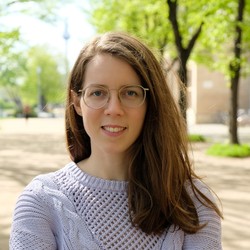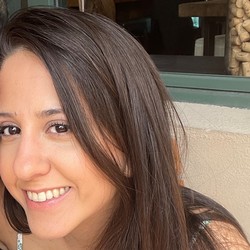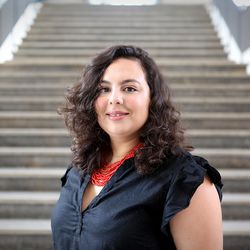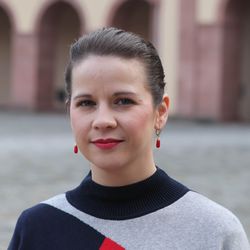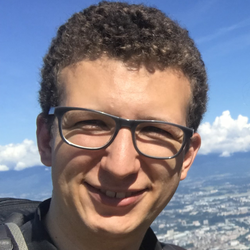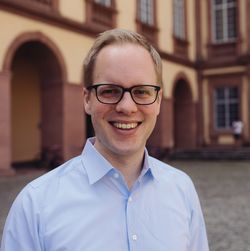Master’s Program in Political Science
Program facts and information
Degree: Master of Arts (M.A.)
Standard period of study: 4 semesters (=2 years)
ECTS credits: 120
Language of instruction: English
Language requirements: English; for further information on the required proof of language proficiency see "Admission requirements and selection"
Program start: Fall semester (September)
Academic calendarSchool: School of Social Sciences
Semester fee: EUR 194 (more information)
Tuition fees for international students from non-EU countries: EUR 1,500
Tuition fees for a second degree: EUR 650Program overview
The two-year master's program in Political Science is a research-oriented master's program during which students advance their methodological competencies in data analysis.
Students can specialize and apply their analytical skills in a broad range of areas including international politics, comparative politics, political economy, European societies and politics, and formal and quantitative methods.
The language of instruction is English.
Why study Political Science at the University of Mannheim?
The University of Mannheim has one of the best political science departments in Germany. Numerous independent national and international rankings, such as the Times Higher Education Ranking or the CHE University Ranking (published by the German newspaper DIE ZEIT), have confirmed the good study conditions at the Department of Political Science in Mannheim and have repeatedly ranked it at the top (take a look at the rankings).
The Department of Political Science’s reputation for its empirical-analytical research approach transcends national borders, and it is one of the leading research institutions in Europe. This academic environment provides excellent conditions for students to gain practical research experience, for example, by contributing to research projects or by working as a student assistant.
The University of Mannheim is part of a global network: Our ties to 450 partner universities all over the world not only impact life on campus, but also open numerous doors to those students who wish to go abroad. They can integrate a period of study abroad into their program without being set back in their studies. In cooperation with Bocconi University in Milan, students enrolled in the master's program in Political Science can even earn a double degree.
As all our master’s courses are taught in English, our students have what it takes to be successful on the world stage when they leave the university.
Career opportunities
Graduates of the master's program in Political Science are ideally positioned for jobs requiring the theoretically and analytically rigorous analysis of social problems. Examples of jobs of recent graduates include also careers outside of academia, in such diverse fields as management or policy consulting, market or media research, journalism, government, international organizations, and NGOs.
Our successful master's students are encouraged to continue their studies in the three-year doctoral program offered by the Center for Doctoral Studies in Social and Behavioral Sciences, a step taken by a significant number of our graduates. Credits earned during the master's program count towards the doctorate requirements, thus reducing the time needed to complete the doctoral program.
Required interests and skills
Students of the master's program in Political Science should have
- a very good level of English proficiency,
- pronounced interest in empirical-analytical research, including instance measurement, game theory, causal inference and software-based data analysis,
- analytical and critical thinking.
Program structure
The teaching in the master's program in Political Science (M.A.) is divided into modules which take place in the first three semesters: methods modules, basic modules in international politics, comparative politics and advanced methods as well as the equivalent research modules. In the second semester, one out of three research modules must be selected. They include three seminars or a lecture, the corresponding tutorial and two seminars.
During the fourth semester, students write their master's thesis and attend the colloquium.
Module catalog
The module catalog gives you an overview of the courses and their content.Studying abroad
The University of Mannheim is partners with 450 universities around the world. In collaboration with the International Office, the school can help you plan a period of study abroad. In the master's program in Political Science, studying abroad is optional.
You can also choose to spend your second year at the University of Bocconi in Milan, Italy, thereby earning a double degree. Application for the double-degree program is possible only after completion of the first semester.Internships
The mandatory research internship (8 ECTS credits) is an integral part of the master’s program in Political Science. You can choose between a six-week internship at a research institution for social sciences or a two-week Summer School course with an empirical focus on social sciences. If you work as a student assistant at one of the chairs of the Department of Political Science, your job may, in certain cases, be recognized as equivalent to a research internship.Continuing Education
Certificate programs
Strengthen your potential, deepen your knowledge, find solutions for challenges we will face tomorrow – there are many good reasons to think outside the box, get to know and try out new things even during your studies.At the University of Mannheim, you can do this in the “Studium Oecologicum” which focuses on sustainability. In our certificate program, you will acquire interdisciplinary expert knowledge which can help you to act ethically and to make holistic decisions.
Language courses
Making language learning easier: No matter if you want to learn Japanese, Hebrew, Spanish or Norwegian, take the Graduate Record Examination Test (GRE), The European Language Certificates (telc) or the TOEFL test – each semester, the University of Mannheim offers language courses and language certificates in more than 16 languages for students and non-university members, online and on campus!Studium Generale
Are you interested in IT or communication trainings or theater, music, or drawing courses? Studium Generale has a vast range of courses available to all.Doctorates
Successful graduates of the master’s program in Political Science are encouraged to apply for the (PDF)
doctoral program
at the Center for Doctoral Studies in Social and Behavioral Sciences (CDSS). Credits obtained during the master’s program can be counted towards the doctorate requirements, thus reducing the time needed to complete the doctoral program.If you strive for an academic career at the Center for Doctoral Studies in Social and Behavioral Sciences (CDSS), you can qualify for Associate Member status in the second year of your master’s program.
It is also possible to pursue a doctorate at a chair of the School of Social Sciences.
Doctoral programs and opportunities at the School of Social Science
General information on doctoral studies at the University of MannheimAdmission requirements and selection
In our selection process, we take numerous criteria into account. For more details, please check the selection statutes (see below). Be bold! Please do not hesitate to contact us if you need advice. We are looking forward to receiving your application!
Admission requirements
If you have not yet completed your bachelor’s degree, you may still apply for a master’s program as long as will provide a proof that you have obtained at least 130 ECTS credits.
- Completion of a bachelor’s program in Political Science or a program recognized as equivalent, completed with a grade of “good” or better (equivalent to the German grade of 2.5) at a German higher education institution or abroad (also Berufsakademie) and corresponding to at least 180 ECTS credits or a standard period of study of at least three years
- Good grades in the bachelor’s program (at least a grade of “good” or better, equivalent to the German grade of 2.5) in the field of methods of Empirical Social Research and Statistics
- Proof of proficiency in English (may be submitted by 15 August)
Selection criteria
- The final grade or – for students still completing their degree – the grade average of the bachelor’s program
- Letter of motivation in English (500-word maximum)
- Text sample in German or English (5000-word maximum)
Selection statutes
Under “Admission requirements and selection” we have compiled the most important selection criteria of the program for you. For more detailed explanations of the selection process and the legally binding requirements of the degree program, please refer to the selection statutes.Application
Scholarships and funding
The university offers various funding opportunities. Around 200 Mannheim students receive scholarships every year, which are intended to give them the freedom to focus on their academic achievements or to continue their voluntary work alongside their studies. Find out more about the funding opportunities and feel free to apply, for example, for the Deutschland Scholarship, the Opportunity Mannheim Scholarship or the Elite Sports Scholarship Rhine-Neckar Metropolitan Region.Funding opportunities for international degree-seeking students
Application deadline
The application deadline for fall semesters starts on 1 April and ends on 15 May.It is not possible to apply for the spring semester.
Contact
N. N.
School of Social Sciences
A 5, 6
Building A – Room A 418
68159 Mannheim
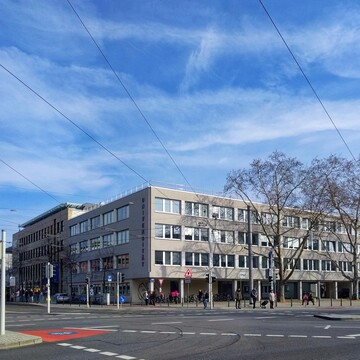
Admissions Office
L 1, 1 – Room 157, 158
68161 Mannheim

